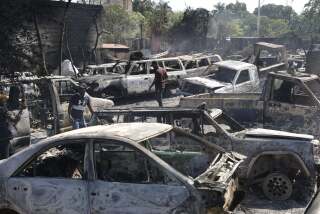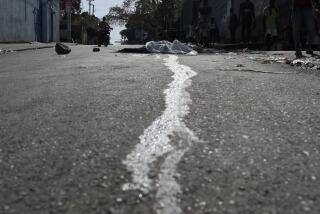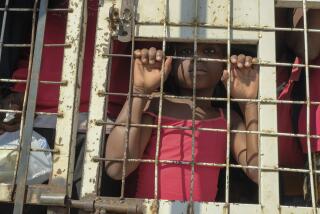Remember Haiti? Its people are still exposed to storm dangers
On its way to disrupting the Republican National Convention in Florida and several days before it made landfall in Louisiana, Hurricane Isaac narrowly missed delivering another catastrophic blow to Haiti, still recovering from the January 2010 earthquake that left thousands dead and briefly — too briefly — focused international attention on that country’s many troubles.
Isaac did not claim thousands of lives, as feared, and it quickly moved on to more newsworthy locales. But for those of us who were in Haiti, it offered a stark reminder of how much remains to be done. Efforts to rebuild the country, especially much-needed housing, have failed to deliver even the most basic protection against the seasonal storms that typically batter the island. More than 350,000 Haitians left homeless by the quake are still living in camps, in deplorable conditions. Fewer than 16,000 homes have been repaired, and fewer than 6,000 have been built to replace those destroyed, according to the New York Times.
Too much is at stake to tolerate such slow progress. For those living in the camps, any storm is devastating. At Pax Villa, a camp on the edge of a cemetery in Port au Prince’s outskirts, hundreds of tent dwellers weathered Isaac with little more than tarps over their heads. The day after, they found themselves trying to repair their makeshift homes with tape and rocks, while mud, trash and feces oozed around them. Some worried about an outbreak of cholera; others feared that the continued rain would bring flooding. Eleven-year-old Neffali August wandered about the camp alone because her mother had died of a heart attack hours after Isaac ripped across Haiti.
PHOTOS: Isaac lashes Gulf Coast
There are many reasons why Haitians are still living in camps. Political squabbling between President Michel Martelly and the parliament delayed the appointment of a prime minister, which in turn delayed the formation of a functional government. Martelly’s administration alienated international donors with efforts to reconstitute the country’s notorious army, an organization synonymous with human rights violations. And the priority has been to remove tent dwellers, often to more distant temporary housing, not to create permanent dwellings in Port au Prince.
None of that justifies the conditions suffered by Haitians still consigned to camps. The government says it has run out of funds to move tent dwellers into housing that has been repaired in nearby cities, and it is expected to ask for international help this week. The United States and other donors should redouble efforts to push the Martelly administration to move forward with reconstruction. The next storm may be deadlier, and Haiti remains vulnerable to it.
— Sandra Hernandez
More to Read
A cure for the common opinion
Get thought-provoking perspectives with our weekly newsletter.
You may occasionally receive promotional content from the Los Angeles Times.






